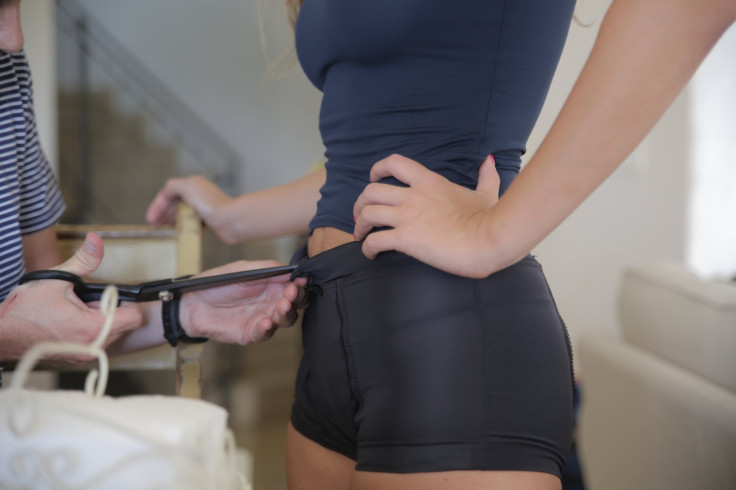Anti-Rape Underwear On Indiegogo: AR Wear Clothing Line For Women And Girls Sparks Anger, Praise

Opinions are divided over an Indiegogo campaign soliciting funds to produce a line of rape-resistant garments for women and girls. Is the idea a necessary precaution in a country where nearly one in five women report being victims of sexual assault? Is it a marketing ploy with no real practical value outside of publicity for its creators? Or is it another example of a rape-apologist culture that insists on shifting blame to the victim?
The campaign, “AR Wear,” was launched last month and has raised more than $37,000 of its $50,000 goal as of Wednesday. It includes prototype photos of anti-rape underwear, running shorts, travel shorts and other attire. Complete with built-in locking devices, the garments are designed to resist unwanted removal in the event of an attack.
The campaign creators, identified on their profile as Ruth and Yuval, write that they developed the idea after reading statistics on rape-resistance strategies. They linked to one study of rape victims by Sarah Ullman, a criminal justice researcher at the University of Chicago, who examined the success rate of various types of resistance against sexual attackers, including forceful, non-forceful and verbal resistance.
“We concluded that an item of clothing that creates an effective barrier layer can allow women and girls to passively resist an attacker, in addition to any other form of resistance they may be able to carry out at the time of an assault.”
With more than 1,700 backers, the concept clearly has its supporters. Among the 148 Indiegogo visitors who commented on the project were people identifying themselves as rape victims, saying AR Wear is an idea whose time has come:
“I was raped at age 17 while at a party & I was drinking. I had passed out. When I came to I’d found out that I’d been raped by 3 guys that night. Maybe if I had your product it wouldn’t have happened because then I wouldn’t have been such an easy target. I hope you make your goal & wish I could donate more.”
On Twitter and elsewhere, a number of critics find the idea reprehensible. Color Lines writer Vion Diaz said the campaign “reinforces every rape myth you can think of.”
Tara Culp-Ressler, a health editor for Think Progress, agrees. Among her complaints on a Tuesday blog post is that AR Wear, as a function of protection, characterizes sexual violence as an accident rather than a crime. The concept, she writes, assumes that rape typically occurs on blind dates or after a night of clubbing, thus ignoring obscuring “the reality of date rape or intimate partner violence.
The creators, for their part, state up front that do not believe AR Wear is going to solve the “fundamental problem that rape exists in our world.” They add that the “only one responsible for a rape is the rapist.” They’ve also been responsive in responding to criticism and suggestions, including updates stating that they will include a plus-size line and possibly even a line for men.
Support the idea or not, the campaign -- with more than two weeks to go and a groundswell of publicity -- appears to be well on its way to surpassing its fund-raising goal. Ruth and Yuval say they need the funds to finalize production-ready prototypes. They hope to launch the line in July 2014; however, they concede that they can’t “in good conscious” accurately predict when the garments will be in production.
Watch the video below and decide for yourself.
Got a news tip? Email me. Follow me on Twitter @christopherzara
© Copyright IBTimes 2025. All rights reserved.






















